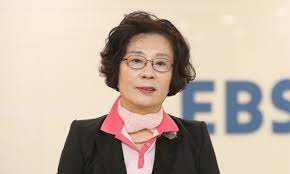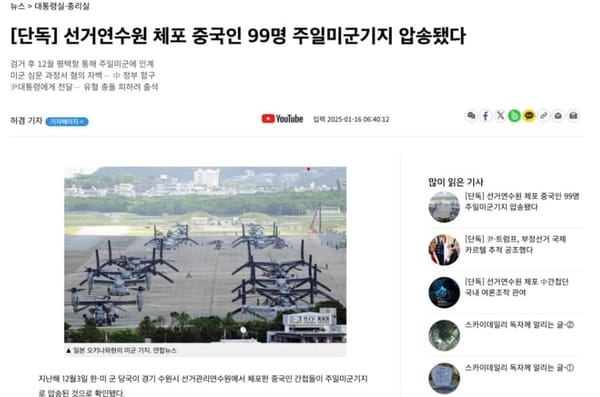Photo: Yu Si-chun. Credit: EBS.
Yet another international study has found democratic backsliding in South Korea under the Yoon Suk-yeol 윤석열 administration. In the 2024 World Press Freedom Index, released May 3 by Reporters Without Borders, South Korea ranked 62nd, falling 15 places from 2023. South Korea’s standing is at its lowest since 2016, the last year of the Park Geun-hye 박근혜 administration, when it ranked 70th.
During the Moon Jae-in 문재인 administration, South Korea ranged between 41st and 43rd on the list. The highest South Korea has ever ranked was 31st, in 2006, under the Roh Moo-hyun 노무현 administration.
Anyone observing the events of this week would be unsurprised by South Korea’s fall in the Press Freedom Index. On April 30, the Public Prosecutors’ Office 검찰청 raided the publicly-owned Educational Broadcasting System (EBS) 교육방송, ostensibly to investigate misappropriation of budgeted funds by board chairwoman Yu Si-chun 유시춘, who is a sister of a prominent liberal politician and pundit Yu Si-min 유시민.
There is little question that the raid was pretextual. Yu’s use of the budget is public information, and does not require PPO investigators to barge into the EBS offices and root through every filing cabinet. The alleged misappropriation? Six years’ worth of de minimis overage of the corporate credit card on purchases such as a KRW 5k (USD 3.70) cup of coffee from 2022. Fourteen directors of the three publicly owned television stations, Korea Broadcasting System (KBS), Munhwa Broadcasting Corporation (MBC) and EBS, held a joint press conference denouncing the raid.








